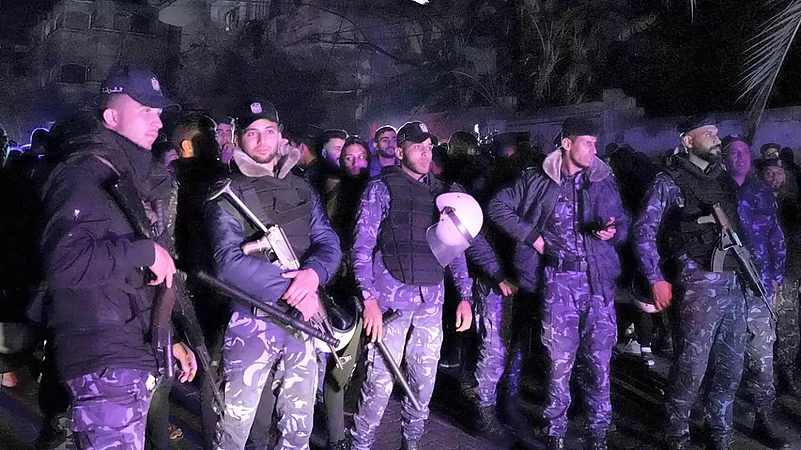Israeli forces killed a Palestinian man in a flashpoint city in the occupied West Bank on Monday, the Palestinian Health Ministry said.
The killing marks the latest bloodshed in spiralling violence that comes as US Secretary of State Antony Blinken visits the region.
The Israeli military had no immediate comment. The Palestinian Health Ministry said the man, Nassim Abu Fouda, 26, was shot in Hebron, often a centre of clashes between the Israeli military and Palestinians.
Israeli-Palestinian violence has spiked in recent days, with an Israeli military raid on a militant stronghold in the West Bank city of Jenin last week killing 10, most of them militants, and a Palestinian shooting attack in an east Jerusalem Jewish settlement that killed seven Israelis.
Unrest has continued in the ensuing days, prompting Israel to approve a series of punitive steps against the Palestinians and ratcheting up tensions just as Blinken begins meetings with leaders later in the day.
The violence comes after months of Israeli arrest raids in the West Bank, which were launched after a wave of Palestinians attacks against Israelis in the spring of 2022 that killed 19 people.
Nearly 150 Palestinians were killed in the West Bank and east Jerusalem last year, making it the deadliest year in those territories since 2004, according to figures from the Israeli rights group B'Tselem. Another 10 Israelis were killed later last year, raising the 2022 Israeli death toll to 29.
Israel says that most of those killed have been militants but others — including youths protesting the incursions and other people not involved in confrontations — have also been killed.
Israel says the military raids are meant to dismantle militant networks and thwart future attacks while the Palestinians view them as further entrenchment of Israel's open-ended, 55-year occupation.
The bloodshed has spiked this month, during the first weeks of Israel's new far-right government, which has promised to take a tough stance against the Palestinians and ramp up settlement construction. Monday's death brings the toll of Palestinians killed this month to 35.
Blinken's visit, which was planned before the flare-up, was expected to be fraught with tension over differences between the Biden administration and Israeli Prime Minister Benjamin Netanyahu's new government, which is made up of settlement supporters. He will now need to contend with an additional challenge during his trip, trying to restore calm even as violence persists.
After the Jenin raid, the Palestinians said they would cancel security coordination with Israel and after attacks against Israelis intensified, Israel said it would beef up Jewish settlements in the West Bank, among other steps.
Israeli Army Radio reported late Sunday that the government was also set to approve a rogue outpost deep inside the West Bank, and speed up approval for other such small settlements.
Israel also arrested 42 Palestinians, some relatives of the Jerusalem attacker, in its investigation into the attack. And the firebrand National Security Minister Itamar Ben-Gvir said he has ordered authorities to demolish illegally built Palestinian homes in east Jerusalem in response to the attack.
Ben-Gvir called it “one step among a series of important steps for governance and for the war on terror and we need more steps in this war.”
Palestinian residents of the city's eastern sector say systemic housing discrimination means they are rarely granted building permits, prompting them to build illegally.
Israel captured the West Bank, east Jerusalem and the Gaza Strip in the 1967 Mideast war, territories the Palestinians claim for their hoped-for independent state.
Some 500,000 Israelis now live in the West Bank in dozens of settlements and outposts, some made up of just a few mobile homes and others sprawling cities with malls and public transit. The Palestinians and much of the international community view settlements as illegal and an obstacle to peace.





















